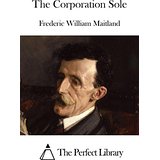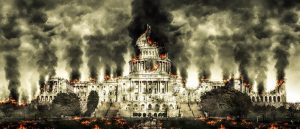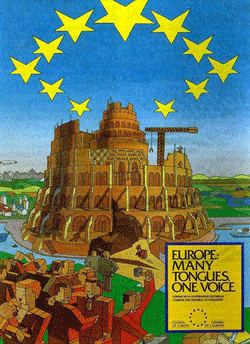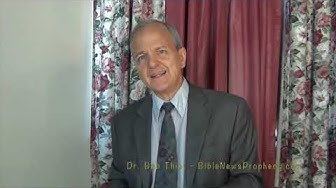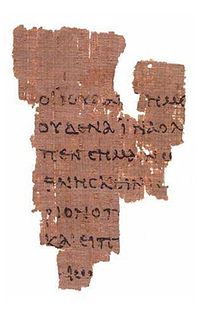
COGwriter
Many wonder what ‘mark’ or marks may be associated with the final Antichrist.
But few understand who the final Antichrist can be, let alone his mark. And relatively few will properly perceive it.
The terms ‘antichrist’ and ‘antichrists’ are only used in the Bible five times (four and one respectively), and are only found in four verses of the Bible—all written by the Apostle John.
Those verses are 2 John 7, 1 John 2:18, 1 John 2:22, and 1 John 4:3. All of them discuss some aspect of theology, which suggest, therefore, that the final Antichrist is mainly a religious figure.
Probably starting no later than with Simon Magus (Acts 8:18-24), the “mystery of lawlessness” that the Apostle Paul wrote of was “already at work” (2 Thessalonians 2:7).
Irenaeus wrote that followers of Simon Magus felt that the apostles were too influenced by Jewish opinions and that the faith needed to be distant from that (Against Heresies. Book III, Chapter 12, Verses 11-12).
One of the reasons that it is considered to be a mystery is that the supporters of changing the practices of the faithful, while themselves claiming to be faithful, were also distancing themselves from the truly faithful like John.
In addition to Simon Magus, the Bible specifically warns about a group called the Nicolaitans whose deeds the Church of God in Ephesus was praised for hating (Revelation 2:6). Scriptural references to the Nicolaitans (Revelation 2:6;14-15) seem to be referring to a group who wrongly seemed to feel that various of their physical actions/deeds were not of spiritual consequence. The Nicolaitans were seemingly among those “who change the grace of our God into a license for immorality” (Jude 4, NIV; see also What is the Mark of Antichrist?) and/or were certain “semi-Gnostics” who instituted anti-biblical practices—they understood a false gospel. (The Apostle Paul warned about this in 2 Corinthians 11:4 and Galatians 1:6-7.)
For example, while Justin Martyr positively referred to the Apostle John’s writings at least twice (First Apology, Chapter 61 and Dialogue with Trypho, Chapter 81), he distanced himself from John’s practices, while endorsing a compromise with pagan Roman culture.
In Ephesus around 135 A.D., Justin wrote the following, in response to a Jew named Trypho:
But if, Trypho, some of your race, who say they believe in this Christ, compel those Gentiles who believe in this Christ to live in all respects according to the law given by Moses, or choose not to associate so intimately with them, I in like manner do not approve of them (Justin. Dialogue with Trypho, Chapter 47. Excerpted from Ante-Nicene Fathers, Volume 1. Edited by Alexander Roberts & James Donaldson. American Edition, 1885. Online Edition Copyright © 2005 by K. Knight).
Thus, Justin admits that there were two groups in Ephesus, one that kept all the law and the other that did not. He also admits that he did not approve of those who kept the law. Justin Martyr records this accusation from Trypho:
But this is what we are most at a loss about: that you, professing to be pious, and supposing yourselves better than others, are not in any particular separated from them, and do not alter your mode of living from the nations, in that you observe no festivals or Sabbaths…you do not obey His commandments (Justin Martyr. Dialogue with Trypho. Chapter 10. Translated by Alexander Roberts and James Donaldson. Excerpted from Volume I of The Ante-Nicene Fathers (Alexander Roberts and James Donaldson, editors); American Edition copyright © 1885. Electronic version copyright © 1997 by New Advent, Inc.).
This confused Trypho. Justin was claiming to be pious and faithful, but was actually practicing the mystery of lawlessness.
While the Christians in Ephesus were told to live differently than the other Gentiles in whose nation they co-existed with (Ephesians 4:17), those with Justin Martyr could not be distinguished. It is interesting to note that Trypho expected that Justin would have kept the Sabbath–this is because that was the common practice of those that professed Christ in Asia Minor. Polycarp of Smyrna, for example, lived there and kept practices like the festivals, Sabbaths, and Passover on the 14th (and not Sunday, see Fragments from the Lost Writings of Irenæus, Chapter 3; Pionius. Life of Polycarp, Chapter 2; Polycrates. Letter to Bishop Victor).
It is believed that the discourse between Trypho and Justin Martyr took place in Ephesus, though Justin Martyr later ended up in Rome (Lebreton J. St. Justin Martyr. The Catholic Encyclopedia)–which may have been when he adopted or further pushed Sunday on Rome.
Justin’s writings help prove that there would have had to be two very different professing Christian groups in Ephesus. Justin Martyr specifically claimed his group did not observe the Sabbath, nor keep the Feasts, nor eat unleavened bread (Dialogue with Trypho. Chapter 18)—yet, according to the Catholic historian Eusebius, Polycrates later confirmed that Passover was continually kept on the 14th and unleavened bread was still eaten annually by the Christians who were the followers/successors of Polycarp and John in Ephesus (Eusebius. Church History. Book V, Chapter 24).
Justin was the first writer to specifically discuss worship on Sunday:
But Sunday is the day on which we all hold our common assembly, because it is the first day on which God, having wrought a change in the darkness and matter (The First Apology. Chapter LXVII).
According to most scholars, this writing occurred in 150 A.D. The Greek expression he used was τῇ τοῦ Ηλίου λεγομένη ἡμέρᾳ which literally seems to mean “on the day said to be Helios.” Helios was the name of the Greek sun god, and Justin was telling the Greek reading Roman emperor (if he ever actually saw the letter) that Justin’s faith was consistent with those who worshiped the sun god. The apostate Justin is considered to be a saint by the Greco–Roman–Protestant faiths.
As the late Dr. Bacchiocchi indicated, some of the first documented changes that the Greco-Roman churches adopted was distancing themselves from practices considered to be Jewish. Sometimes because of fear of imperial persecution, but sometimes because of hate towards Jews or things considered to be Jewish.
The second century heretic Marcion hated the seventh-day Sabbath and things he considered to be Jewish:
Marcion acquired his very perverse opinions not from a master, but his master from his opinion! … He displayed a hatred against the Jews’ most solemn day, He was only professedly following the Creator, as being His Christ, in this very hatred of the Sabbath… (Tertullian. Against Marcion, Book IV, Chapter 12. Excerpted from Ante-Nicene Fathers, Volume 3. Edited by Philip Schaff, D.D., LL.D. American Edition, 1885. Online Edition Copyright © 2005 by K. Knight).
Marcion insisted that the Church had obscured the Gospel by seeking to combine it with Judaism (Latourette KS. A History of Christianity, Volume 1: to A.D. 1500. HarperCollins, San Francisco, 1975, p. 126).
Although he is considered to be an apostate, Marcion was, for decades, accepted by the Church of Rome.
He was specifically denounced by Polycarp of Smyrna, when Polycarp visited Rome:
Polycarp himself replied to Marcion, who met him on one occasion, and said, “Dost thou know me?” “I do know thee, the first-born of Satan.” (Irenaeus. Adversus Haereses. Book III, Chapter 3, Verse 4. Excerpted from Ante-Nicene Fathers, Volume 1. Edited by Alexander Roberts & James Donaldson. American Edition, 1885. Online Edition Copyright © 2004 by K. Knight).
So, Polycarp personally denounced one who taught against the Sabbath. Yet, Rome accepted Marcion for decades.
Irenaeus (a Catholic/Orthodox/Protestant saint) reported:
Marcion, then, succeeding him, flourished under Anicetus, who held the tenth place of the episcopate. (Irenaeus. Adversus Haereses. Book III, Chapter 4, Verse 3. Excerpted from Ante-Nicene Fathers, Volume 1. Edited by Alexander Roberts & James Donaldson. American Edition, 1885. Online Edition Copyright © 2004 by K. Knight).
One that Polycarp denounced, and is now considered an apostate by the Church of Rome, flourished under Bishop Anicetus of Rome. Some Protestants have embraced Marcion as an original Protestant. Yet, Marcion was an antichrist.
In the early fourth century Constantine became Emperor of Rome. He personally claimed to see an apparition of the sun god Sol in a grove of Apollo in Gaul in 310 (discussed in Rodgers, Barbara S. “Constantine’s Pagan Vision, ”Byzantion, vol. 50, 1980, pp. 259–78).
Even after his alleged conversion to his claimed version of the Christian faith in 312 (if he was ever baptized, it was supposedly on his death bed in 337 A.D., despite him declaring himself a lay “Christian” bishop by 325), Emperor Constantine still put the sun god Sol on his coins.
Constantine was devoted to Sunday and decreed circa March 7, 321:
Let all judges, the people of cities, and those employed in all trades, remain quiet on the Holy Day of Sunday. Persons residing in the country, however, can freely and lawfully proceed with the cultivation of the fields; as it frequently happens that the sowing of grain or the planting of vines cannot be deferred to a more suitable day, and by making concessions to Heaven the advantage of the time may be lost (Code of Justinian, Book III, Title XII, III. THE JUSTINIAN CODE FROM THE CORPUS JURIS CIVILIS. Translated from the original Latin by Samuel P. Scott. Central Trust Company, Cincinnati, 1932).
Shortly after the above decree, Eusebius recorded this about Constantine:
Accordingly he enjoined on all the subjects of the Roman empire to observe the Lord’s day, as a day of rest (Eusebius. Life of Constantine, Book IV, Chapter 18).
Notice that “the Lord’s day” became enjoined by a decree of a Roman Emperor. Also notice the following:
There is a large body of civil legislation on the Sunday rest side by side with the ecclesiastical. It begins with an Edict of Constantine, the first Christian emperor, who forbade judges to sit and townspeople to work on Sunday (Slater T. Transcribed by Scott Anthony Hibbs. Sunday. The Catholic Encyclopedia, Volume XIV Copyright © 1912 by Robert Appleton Company).
The bolded quote shows one of the first official intertwinings of European politics and Catholic doctrine. Despite the fact that he was not baptized nor ordained, the influence of the sun-god worshiping Emperor Constantine, who declared himself a bishop, was highly significant:
So prominent had Christians and their day become that when the Emperor Constantine proclaimed Sun Day as the weekly holy day for all Romans, some Christians believed that it was for their sake. More likely Constantine, like many Roman aristocrats of the time, was simply trying to find common ground for his mixed pagan and Christian subjects, especially his soldiers. Unity was for the good of the state and the emperors’ power (Harline C. Sunday: A History of the First Day from Babylonia to the Super Bowl. Doubleday, NY, 2007, p. 17).
However, after a time, Constantine did clearly begin to provide more favor to the Roman version of ‘Christianity’ which (like the pagans, but unlike the Church of God) endorsed Sunday.
In 325 A.D., he convened the Council of Nicea which endorsed Sunday as the weekly day of worship as well as the day for Passover.
Of course, the Greco-Roman faiths liked this as they had already adopted Sunday in most regions (though they still had to face opposition in Asia Minor). After that council, those in the Church of God who kept the Sabbath as well as Passover on the proper date were considered to be heretics and outcasts.
Roman Catholics consider that Sunday is their mark:
“Sunday is our mark of authority. . . .The church is above the Bible, and this transference is proof of that fact.” The Catholic Record, September 1, 1923.
“Of course the Catholic Church claims that the change (from Saturday to Sunday) was her act. It could not have been otherwise, as none in those days would have dreamed of doing anything in matters spiritual and religious without her, and the act is a mark of her ecclesiastical power and authority in religious matters.” The Catholic Mirror, September 23, 1893. (as reported in: Wehr J. Who Are These Three Angels? Hartland Publications, 1997, p. 112)
“Perhaps the boldest thing, the most revolutionary change the Church ever did, happened in the first century. The holy day, the Sabbath, was changed from Saturday to Sunday. ‘The Day of the Lord’ (dies Dominica) was chosen, not from any directions noted in the Scriptures, but from the Church’s sense of its own power. The day of resurrection, the day of Pentecost, fifty days later, came on the first day of the week. So this would be the new Sabbath. People who think that the Scriptures should be the sole authority, should logically…keep Saturday holy”. Priest Leo Broderick, Saint Catherine Catholic Church Sentinel, Algonac, Michigan, May 21, 1995. (as reported in Morgan K. Sabbath Rest. TEACH Services, Inc., 2002, p. 59)
“It was the Catholic Church which…transferred this rest to the Sunday in remembrance of the resurrection of the Lord. Thus the observance of Sunday by the Protestants is an homage they pay, in spite of themselves, to the authority of the church.” (Monsignor Louis Segur. “Plain Talk about the Protestantism of Today.” Patrick Donahoe, 1868, p 225 (note some other sources say p. 213); as cited in Hartland Publications. What Shall I Do to Inherit Eternal Life? 2004, p. 83)
So, Catholics believe that their authority is shown by adoption of Sunday. Notice also the following from The Catholic Encyclopedia:
The Church, on the other hand, after changing the day of rest from the Jewish Sabbath, or seventh day of the week, to the first, made the Third Commandment refer to Sunday as the day to be kept holy as the Lord’s Day (Stapleton, J.H. The Ten Commandments. Transcribed by Marcia L. Bellafiore. The Catholic Encyclopedia, Volume IV. Published 1908. New York: Robert Appleton Company. Nihil Obstat. Remy Lafort, Censor. Imprimatur. +John M. Farley, Archbishop of New York).
A non-biblical change was made. It did not come from Jesus nor His early faithful followers. Perhaps it should also be mentioned that some Catholics consider the cross to be their mark (see also What is the Origin of the Cross as a ‘Christian’ Symbol? and The Mark of the Beast).
What do the Eastern Orthodox Catholics teach?
The Orthodox believe that Sabbath is Saturday (to this day, the Greek word for Saturday is pronounced ‘sabbado’ – as is the case in many other languages). Hence, Saturday is the old Sabbath and Sunday is the Lord’s Day or the Day of Resurrection. In the Orthodox tradition, Saturday always has the feastly character of the Jewish sabbath; it is never a strict fasting day. Moreover, it has always been the liturgical practice to serve Divine Liturgy both on Sabbath and the Lord’s Day, and this remains the case in Orthodox monasteries. However, Christians are not under the Law and they are not subjects of the Old Creation. The old Sabbath was the seal of the old creation, whereas Sunday is seal of the New Creation, the first or eighth day. For this reason, Gentile Christians have never been bound by Sabbatical laws on the old Sabbath. (Cleenewerck L, editor. Orthodox Answers: Sabbath. http://www.orthodoxanswers.org/details.asp?ID=10 viewed 06/13/09)
As the day after the seventh day (when God rested from His six days of creation) and as the day of Christ’s Resurrection, Sunday early on came to be understood in a mystical way among Christians as the “Eighth Day.” … And from ancient times, Christian baptisteries and fonts have been built with eight sides, indicating the newly baptized are entering the realm of the Eighth Day, the day of eternal rest (Heb 4:1-11) in Christ’s Heavenly Kingdom. (The Sabbath Day, Sunday, and the Eighth Day. St. Sophia Greek Orthodox Church Bellingham, Washington. http://www.saintsophias.org/the-sabbath-day.html viewed 10/30/14)
So Roman Catholics claim Sunday is their mark, whereas Eastern Orthodox ones say Sunday is a seal. Both groups know Saturday is the Sabbath, but long ago accepted Sunday as the weekly day for worship and Easter. Both groups also accepted the decisions of the pagan Emperor Constantine’s Council of Nicea. Both groups plan to have a reunion commemorating that Council as well (watch 3rd Council of Nicea in 2025?). They both push and accept Sunday and ignore/reason around scriptures such as Hebrews 4:9-11, to instead accept a day revered by paganism.
In his 1951 Encyclical Letter, Evangelii Praecones, Pope Pius XII wrote:
. . . the Catholic Church has neither scorned nor rejected the pagan philosophies. (Pius XII, Pope as cited in Jesus Christ and the Gentile Mission. Gregorian Biblical BookShop, 2002, p. 355)
Notice what the late Pope John-Paul II taught:
In fact, in the weekly reckoning of time Sunday recalls the day of Christ’s Resurrection. It is Easter which returns week by week, celebrating Christ’s victory over sin and death, the fulfilment in him of the first creation and the dawn of “the new creation” (cf. 2 Cor 5:17). …
“God blessed the seventh day and made it holy” (Gn 2:3) . . .
The commandment of the Decalogue by which God decrees the Sabbath observance is formulated in the Book of Exodus in a distinctive way: “Remember the Sabbath day in order to keep it holy” (20:8). And the inspired text goes on to give the reason for this, recalling as it does the work of God: “For in six days the Lord made heaven and earth, the sea, and all that is in them, and rested on the seventh day; therefore the Lord blessed the Sabbath day and made it holy” (v. 11). Before decreeing that something be done, the commandment urges that something be remembered. It is a call to awaken remembrance of the grand and fundamental work of God which is creation, a remembrance which must inspire the entire religious life of man and then fill the day on which man is called to rest. Rest therefore acquires a sacred value: the faithful are called to rest not only as God rested, but to rest in the Lord, bringing the entire creation to him, in praise and thanksgiving, intimate as a child and friendly as a spouse. …
We move from the “Sabbath” to the “first day after the Sabbath”, from the seventh day to the first day: the dies Domini becomes the dies Christi! . . .
Sunday is not only the first day, it is also “the eighth day”, set within the sevenfold succession of days in a unique and transcendent position which evokes not only the beginning of time but also its end in “the age to come”. (APOSTOLIC LETTER DIES DOMINI OF THE HOLY FATHER JOHN PAUL II TO THE BISHOPS, CLERGY AND FAITHFUL OF THE CATHOLIC CHURCH ON KEEPING THE LORD’S DAY HOLY. 31 May 1998. http://www.vatican.va/holy_father/john_paul_ii/apost_letters/documents/hf_jp-ii_apl_05071998_dies-domini_en.html viewed 10/29/14)
I would add here that Jesus was NOT resurrected on the day we now call Sunday (see What Happened in the ‘Crucifixion Week’?) and Passover was not intended to be kept weekly and called Easter (the name of a pagan goddess).
Roman Catholic leaders know which day is the biblical Sabbath and seventh day, but still push Sunday. I would add here that the ‘eighth day’ argument came from Gnostics that claimed Christianity. Although Catholics and Protestants have denounced the Gnostics, both groups have leaders that clearly embraced the ‘eighth day’ (for details, see Sunday and Christianity).
Former Pope Benedict XVI claimed that Easter Sunday was an identifying sign:
The intention of this Eucharistic Congress, which ends today, was once again to present Sunday as the “weekly Easter”, an expression of the identity of the Christian community and the centre of its life and mission.
The chosen theme – “Without Sunday we cannot live” (PASTORAL VISIT OF HIS HOLINESS BENEDICT XVI TO BARI FOR THE CLOSING OF THE 24th ITALIAN NATIONAL EUCHARISTIC CONGRESS HOMILY OF HIS HOLINESS BENEDICT XVI Esplanade of Marisabella Sunday, 29 May 2005. http://www.vatican.va/holy_father/benedict_xvi/homilies/2005/documents/hf_ben-xvi_hom_20050529_bari_en.html viewed 10/29/14)
And Easter is truly a sign that those who observe it have deviated from the Bible and changed from the practices of the Apostle John. The claim that Christians cannot live without Sunday is wrong and indicates a willingness to kill those that will not keep it.
Notice more from former Pope Benedict XVI:
After reflecting in the past on the Roman Martyrology and on Sacred Music, you are now preparing to examine in depth the theme: “Sunday Mass for the sanctification of the Christian People”. Because of its spiritual and pastoral implications, this is a very timely topic.
The Second Vatican Council teaches that “the Church celebrates the Paschal Mystery every seventh day, which day is appropriately called the “Lord’s Day’ or “Sunday'” (Sacrosanctum Concilium,n. 106). …
Inspired by knowledge of this, St Ignatius of Antioch asserted: “We are no longer keeping the Sabbath, but the Lord’s Day” (Ad Magn. 9, 1). … (LETTER OF HIS HOLINESS BENEDICT XVI TO CARD. FRANCIS ARINZE ON THE OCCASION OF THE STUDY DAY IN HONOUR OF THE 43rd ANNIVERSARY OF THE PROMULGATION OF THE CONSTITUTION ON THE SACRED LITURGY, SACROSANCTUM CONCILIUM. 27 November 2006. http://www.vatican.va/holy_father/benedict_xvi/letters/2006/documents/hf_ben-xvi_let_20061127_sacrosanctum-concilium_en.html viewed 10/29/14)
Truly a ‘mystery of lawlessness,’ Sunday does not set apart or sanctify God’s people. According to Jesus, it is the truth of God’s word that sets true Christians apart:
17 Sanctify them by Your truth. Your word is truth. 18 As You sent Me into the world, I also have sent them into the world. 19 And for their sakes I sanctify Myself, that they also may be sanctified by the truth. (John 17:17-19)
The Bible teaches to observe, not every Sunday, but every Sabbath. And the ‘Paschal Mystery,’ by which he is supposed to be referring to as Passover, is to be kept annually. That was clearly the practice of the apostles and the early faithful (see Polycrates‘ letter to Victor). As far as his appeal to Ignatius, that is a mistranslation and Benedict should have known that (see also Another Look at the Didache, Ignatius, and the Sabbath).
One should ask themselves, if the Greco-Roman churches are true Christian faiths tied to the word of God, why do they repeatedly and often bring up false arguments to try to convince all to follow their changes to weekly-Sunday and Easter-Sunday?
Notice something the Apostle Paul warned against:
7 For the mystery of lawlessness is already at work. But the one who restrains is to do so only for the present, until he is removed from the scene. (2 Thessalonians 2:7, NAB, a Catholic translation)
7 For the mystery of lawlessness is already at work; only He who now restrains will do so until He is taken out of the way. (2 Thessalonians 2:7, NKJV throughout unless otherwise indicated)
How can iniquity or lawlessness be a mystery?
Well, it is a mystery because most people who profess Christ do not understand what Paul meant by using the term anomia.
A few verses earlier, the Apostle Paul warned about “the man of sin” “the son of perdition” (2 Thessalonians 2:3, the final King of the North), yet many do not understand that sin is related to anomia.
The Apostle John used the word anomia. when he wrote about sin:
4 Whosoever committeth sin transgresseth also the law: for sin is the transgression of the law. (1 John 3:4, KJV)
4 Whoever commits sin also commits lawlessness, and sin is lawlessness. (1 John 3:4, NKJV)
4 Whosoever committeth sin commmitteth also iniquity; and sin is iniquity. (1 John 3:4 , Douay-Rheims)
Anomia is shown to be the iniquity of lawlessness–transgressing God’s law. Sin and lawlessness are mysteries to many who profess Christ.
Many rely on ‘traditions’ and ‘traditional explanations’ of portions of the Bible, without realizing that they are guilty of practicing sin and believing in lawlessness.
In Jesus’ day, the Pharisees were considered to be the strictest, law abiding, religious people. The Apostle Paul affirmed the strictness of that sect himself (Acts 26:5).
Yet, Jesus said that because of their traditions, they were guilty of lawlessness:
3 “Why do you also transgress the commandment of God because of your tradition? 4 For God commanded, saying, ‘Honor your father and your mother’; and, ‘He who curses father or mother, let him be put to death.’ 5 But you say, ‘Whoever says to his father or mother, “Whatever profit you might have received from me is a gift to God” — 6 then he need not honor his father or mother.’ Thus you have made the commandment of God of no effect by your tradition. 7 Hypocrites! Well did Isaiah prophesy about you, saying:
8 “These people draw near to Me with their mouth,
And honor Me with their lips,
But their heart is far from Me.
9 And in vain they worship Me,
Teaching as doctrines the commandments of men.'” (Matthew 15:3-9)
Notice that Jesus condemned the Pharisees as lawbreakers. The Pharisees thought that they kept the Ten Commandments, but they really did not. (For details about how the Pharisees violated each of the Ten Commandments, see the article Were the Pharisees Condemned for Keeping the Law or Reasoning Around it?)
Many who profess Christ that believe they keep the Ten Commandments today are, sadly, like the Pharisees. They think because of their traditional ‘exceptions’ to God’s commandments (which they normally do not consider to be exceptions) that they are not partakers of the ‘mystery of lawlessness.’
But many do not understand the mystery of iniquity.
Forcing Sunday, forcing idolatry (and probably a type of cross), economic blackmail, murder, and persecution are tools of Antichrist. The true Christian church should never be persecuting (see Persecutions by Church and State and Where is the True Christian Church Today?).
While those in the world will go along with this, true Christians will not:
12 Here is the patience of the saints; here are those who keep the commandments of God and the faith of Jesus. (Revelation 14:12)
True Christians will persevere and keep all of God’s commandments and not engage in lawlessness.
Lawlessness is the ‘mark’ of antichrists, and Sunday and idolatry are two marks that have been used in the past and are expected to be in the future.
Antichrist will be influenced by Satan and his demons and will persecute those that will not support his mystery of lawlessness. Commandment breaking is the mark of Antichrist.
Some items of possibly related interest may include:
The Mark of Antichrist What is the mark of Antichrist? What have various ones claimed? Here is a link to a related sermon What is the ‘Mark of Antichrist’?
Mystery of Iniquity What is the mystery of iniquity? How did it start? How will it end? A related sermon is also available: The Mystery of Iniquity.
Mark of the Beast What is the mark of the Beast? Who is the Beast? What have various ones claimed the mark is? What is the ‘Mark of the Beast’?
Another Look at the Didache, Ignatius, and the Sabbath Did Ignatius write against the Sabbath and for Sunday? What about the Didache? What does the actual Greek reveal? Are there intentional mistranlations? A related sermon is available: The Didache, Ignatius, and the Lord’s Way.
The Ten Commandments: The Decalogue, Christianity, and the Beast This is a free draft/unedited pdf book explaining the what the Ten Commandments are, where they came from, how early professors of Christ viewed them, and how various ones, including the Beast of Revelation, will oppose them. A related sermon is titled: The Ten Commandments and the Beast of Revelation.
What is the Origin of the Cross as a ‘Christian’ Symbol? Was the cross used as a venerated symbol by the early Church? A related YouTube video would be Origin of the Cross.
Early Church History: Who Were the Two Major Groups that Professed Christ in the Second and Third Centuries? Did you know that many in the second and third centuries felt that there were two major, and separate, professing Christian groups in the second century, but that those in the majority churches tend to now blend the groups together and claim “saints” from both? “Saints” that condemn some of their current beliefs. Who are the two groups? A related sermon is also available Christianity: Two groups.
Were the Pharisees Condemned for Keeping the Law or Reasoning Around it? Many believe that the Pharisees were condemned for keeping the law, but what does your Bible say? If they were not condemned for that, what were they condemned for? A related sermon is titled Jesus, Pharisees, and the Ten Commandments.
Marcion: The First Protestant? Considered to have been an organized heretic, he taught against the Old Testament, the law, and the Sabbath. Some have considered him to be the first Protestant reformer. But was he?
Is Revelation 1:10 talking about Sunday or the Day of the Lord? Most Protestant scholars say Sunday is the Lord’s Day, but is that what the Bible teaches?
The Sabbath in the Early Church and Abroad Was the seventh-day (Saturday) Sabbath observed by the apostolic and post-apostolic Church? Here is a related sermon video The Christian Sabbath and How and Why to Keep It.
How to Observe the Sabbath? How should you keep the Sabbath? This is an old article by Raymond Cole, with updated information for the 21st century.
The Dramatic Story of Chinese Sabbathkeepers This reformatted Good News article from 1955 discusses Sabbath-keeping in China in the 1800s.
Passover and the Early Church Did the early Christians observe Passover? What did Jesus and Paul teach? Why did Jesus die for our sins? There is also a detailed YouTube video available titled History of the Christian Passover.
The Passover Plot What was the first Passover plot? Which plots have Islam and the Greco-Roman faiths perpetuated about Passover? A sermon video of related interest is The Passover Plots, Including Easter.
Did Early Christians Celebrate Easter? If not, when did this happen? Where did Easter come from? What do scholars and the Bible reveal? Here is a link to a video titled Why Easter?
Where is the True Christian Church Today? This free online pdf booklet answers that question and includes 18 proofs, clues, and signs to identify the true vs. false Christian church. Plus 7 proofs, clues, and signs to help identify Laodicean churches. A related sermon is also available: Where is the True Christian Church?
Continuing History of the Church of God This pdf booklet is a historical overview of the true Church of God and some of its main opponents from Acts 2 to the 21st century. Related sermon links include Continuing History of the Church of God: c. 31 to c. 300 A.D. and Continuing History of the Church of God: 4th-16th Centuries and Continuing History of the Church of God: 17th-20th Centuries. The booklet is available in Spanish: Continuación de la Historia de la Iglesia de Dios, German: Kontinuierliche Geschichte der Kirche Gottes, French: L �Histoire Continue de l �Église de Dieu and Ekegusii Omogano Bw’ekanisa Ya Nyasae Egendererete.
Continuing Church of God The group striving to be most faithful amongst all real Christian groups to the word of God. To see how CCOG has done so far, here is a sermon Continuing Church of God (CCOG) first year anniversary: What has been accomplished? Here is a written link to a version of that sermon in the Spanish language: Aniversario del primer año de la Continuación de la Iglesia de Dios: ¿Qué se ha cumplido?
CCOG.ASIA We in the Continuing Church of God also have the url www.ccog.asia which has a focus on Asia and has various articles in Mandarin Chinese as well as some in English, plus some items in other Asian languages. 我们在继续神的教会也提供此网址 www.ccog.asia, 关注于亚洲并且有各种各样的中英文文章,其中一些用菲律宾语翻译的文章也正在进行中,准备添加到这个网站中。 Here is a link to our Statement of Beliefs in Mandarin Chinese 继续神的教会的信仰声明.
CCOG.IN This is a website targeted towards those of Indian heritage. It has a link to an edited Hindi translation of The Mystery of the Ages and is expected to have more non-English language materials in the future.
CCOG.EU This is a website targeted toward Europe. It has materials in more than one language (currently it has English, Dutch, and Serbian, with links also to Spanish) and it is intended to have additional language materials added.
CDLIDD.ES La Continuación de la Iglesia de Dios. This is the Spanish language website for the Continuing Church of God.
PNIND.PH Patuloy na Iglesya ng Diyos. This is the Philippines website Continuing Church of God. It has information in English and Tagalog.
Paglalahad ng Mga Paniniwala ng Patuloy na Iglesya ng Diyos This is the Statement of Beliefs of the Continuing Church of God in Tagalog, the primary language of the Philippines.
ContinuingCOG channel. Dr. Thiel has produced scores of YouTube video sermons for this channel. Note: Since these are sermon-length, they can take a little longer to load than other YouTube videos.
